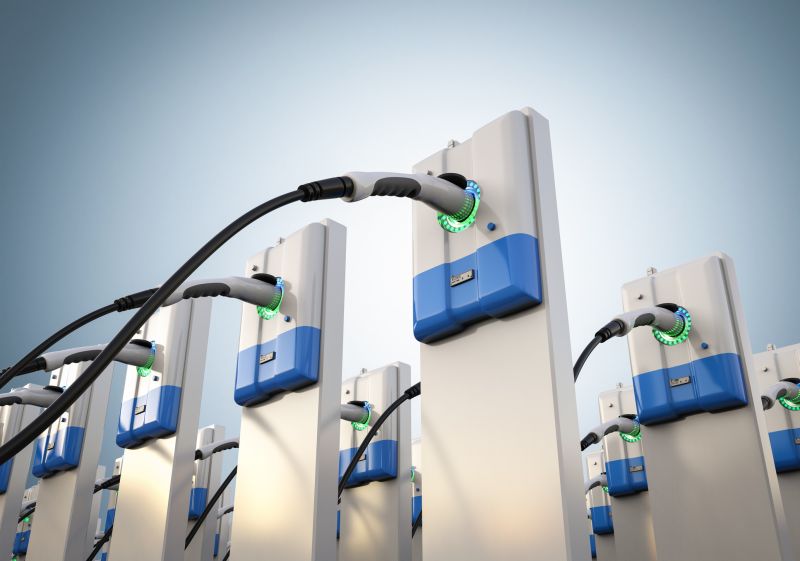US electric vehicle pressure group welcomes new US emission standards, which it believes will accelerate the end of fossil-fuelled cars and trucks
On Wednesday, the U.S. Environmental Protection Agency (EPA) announced new emissions standards for light- and medium-duty vehicles. The rule is expected to lead to 31–44% battery electric vehicle (BEV) sales in 2030 and 35–56% BEV sales in 2032.
Ben Prochazka, executive director of the Electrification Coalition, issued the following statement: “Today’s action provides necessary regulatory certainty and is another opportunity to ensure we end our nation’s dependence on oil for transportation. We are seeing strong EV sales growth, with almost five million EVs sold in the U.S. Transportation electrification is no longer a question of ‘if’ but a question of ‘when?’.
“Because global oil markets are controlled by bad actors who do not share our democratic values, shifting away from oil and toward electricity makes the U.S. stronger and safer.
“With this clarity, we have the opportunity to leverage important commitments from the automotive industry, action at the local, state, and federal levels, and powerful technology to accelerate EV adoption. By plugging into a diverse and domestic grid, we are driving electric, building electric, and powering electric, which will create good American jobs and help ensure the U.S. maintains its automotive leadership.
“We appreciate the Biden-Harris administration’s ongoing efforts to advance transportation electrification, including yesterday’s U.S. Department of Energy announcement of an updated fuel economy formula for EVs and generational investments through the Bipartisan Infrastructure Law and Inflation Reduction Act.”
He was speaking after the Environmental Protection Agency last week (March 20) finalised the strongest pollution standards for passenger cars, light-duty trucks, and medium-duty vehicles in history. The standards aim to avoid more than 7 billion tons of carbon emissions and provide nearly $100 billion of annual net benefits to society, including $13 billion of annual public health benefits due to improved air quality, and $62 billion in reduced annual fuel costs, and maintenance and repair costs for drivers. says the EPA.
In a full press statement the EPA said leaders from across business and labor, advocacy and public health groups, and government are praising the final standards.
Ford Motor Company:
“We appreciate EPA’s efforts and collaboration in strengthening greenhouse gas emissions standards in ways that reflect the realities of the EV transition. The agency’s final rule is ambitious and challenging, and achieving its requirements will take close public-private cooperation. Ford will continue to lower emissions while offering our customers choices across hybrid, plug-in hybrid and fully electric vehicles that are highly functional and fun to drive – including America’s best-selling hybrid and fully electric trucks.”
General Motors:
“GM supports the goals of the EPA’s final rule and its intention to significantly reduce emissions. Although challenging, we believe our commitments and investments in an all-electric future place GM in an excellent position to contribute to the goals of the final rule. While we review the details, we encourage continued coordination across the U.S. federal government and with the California Air Resources Board to ensure the auto industry can successfully transition to electrification.”
Stellantis:
“Electrification is vital to our Dare Forward vision, which includes a genuine commitment to provide our customers with no-compromise driving experiences that also benefit the environment. While the later-year targets remain aggressive, the final rule improves on the proposal by better reflecting the expected trajectory of market demand and enabling infrastructure. It is critical that forthcoming rules align with this proposal so that US manufacturers can effectively comply with a single set of rules.”
John Bozzella, Alliance for Automotive Innovation:
“The future is electric. Automakers are committed to the EV transition – investing enormous amounts of capital and building cutting edge battery electric vehicles, plug-in hybrids, traditional hybrids and fuel cell vehicles that drive efficiency and convert petroleum miles to electric miles. Consumers have tons of choices.
About the Electrification Coalition
The Electrification Coalition is a nonpartisan, nonprofit organisation that promotes policies and actions to facilitate the widespread adoption of plug-in electric vehicles (EVs) on a mass scale to overcome the economic, public health and national security challenges that stem from America’s dependence on oil.





